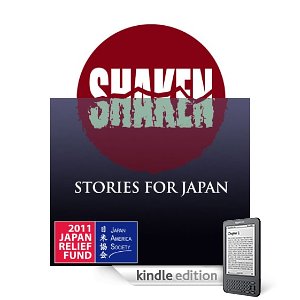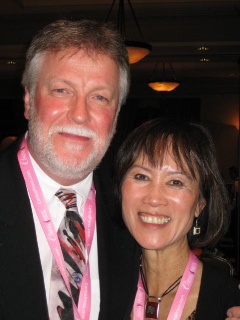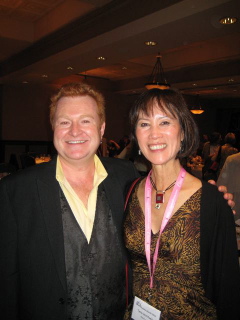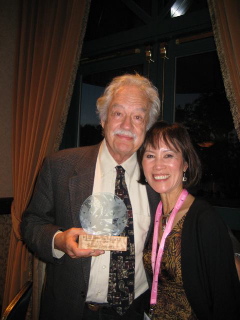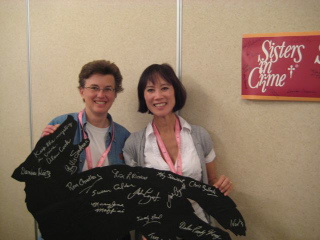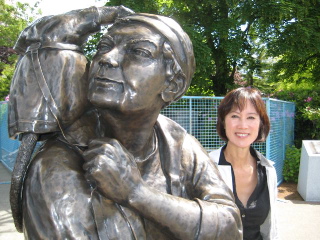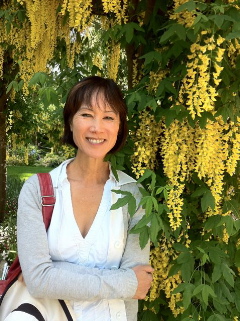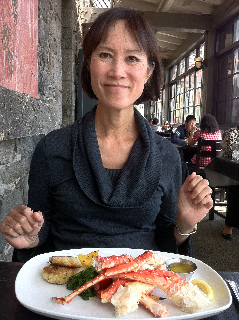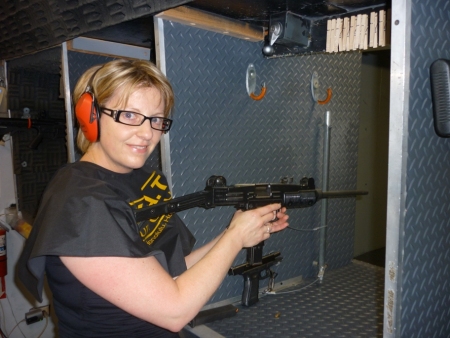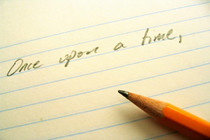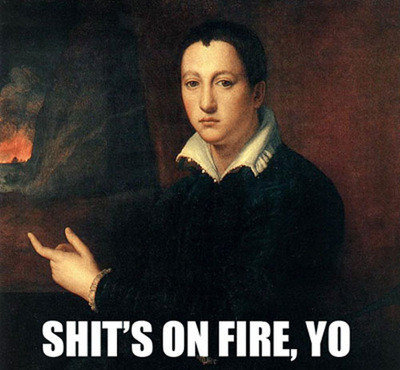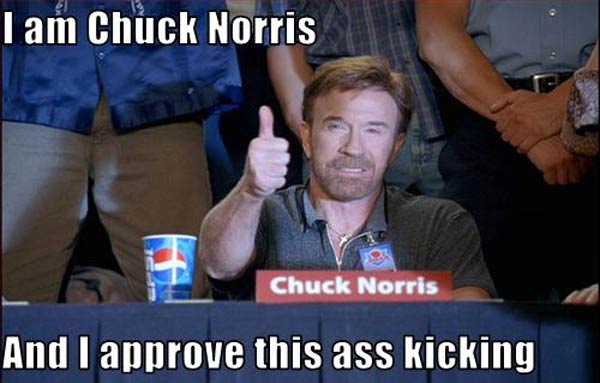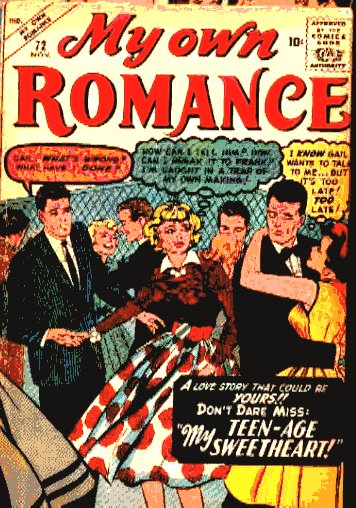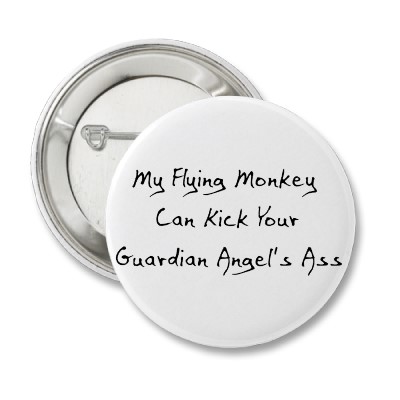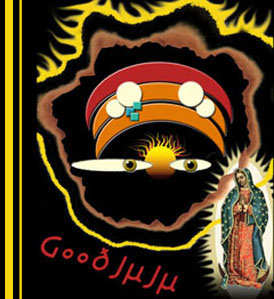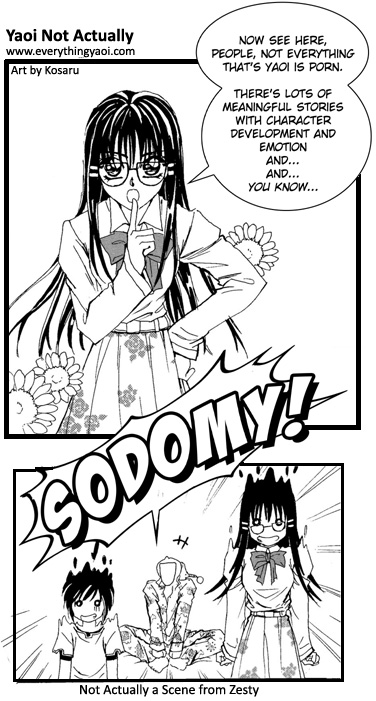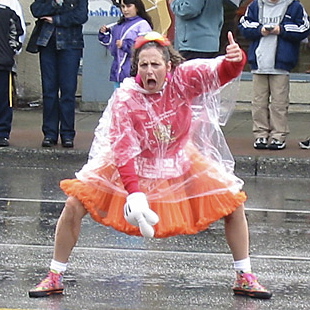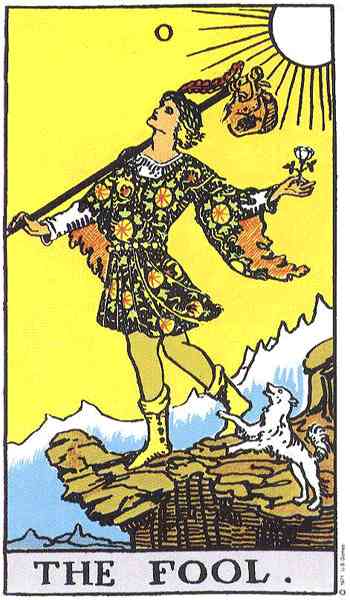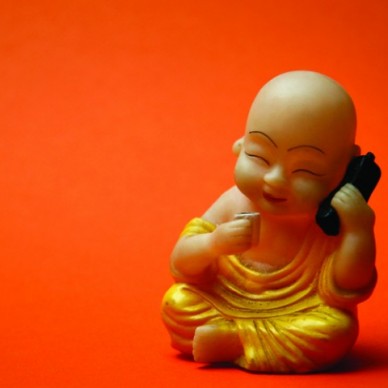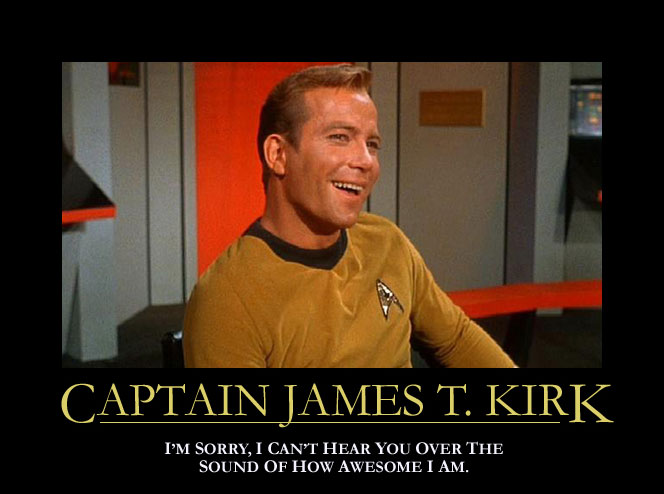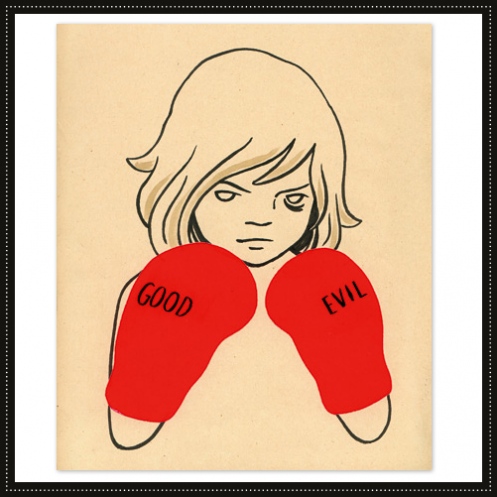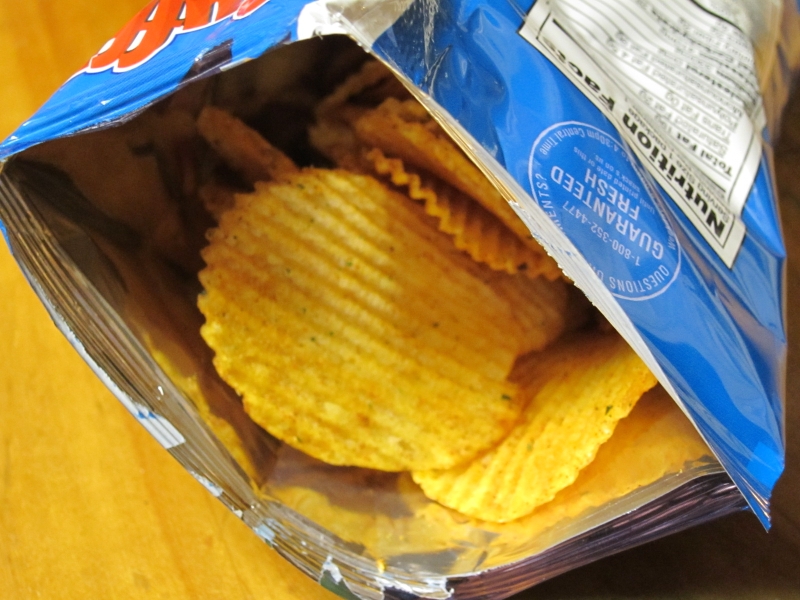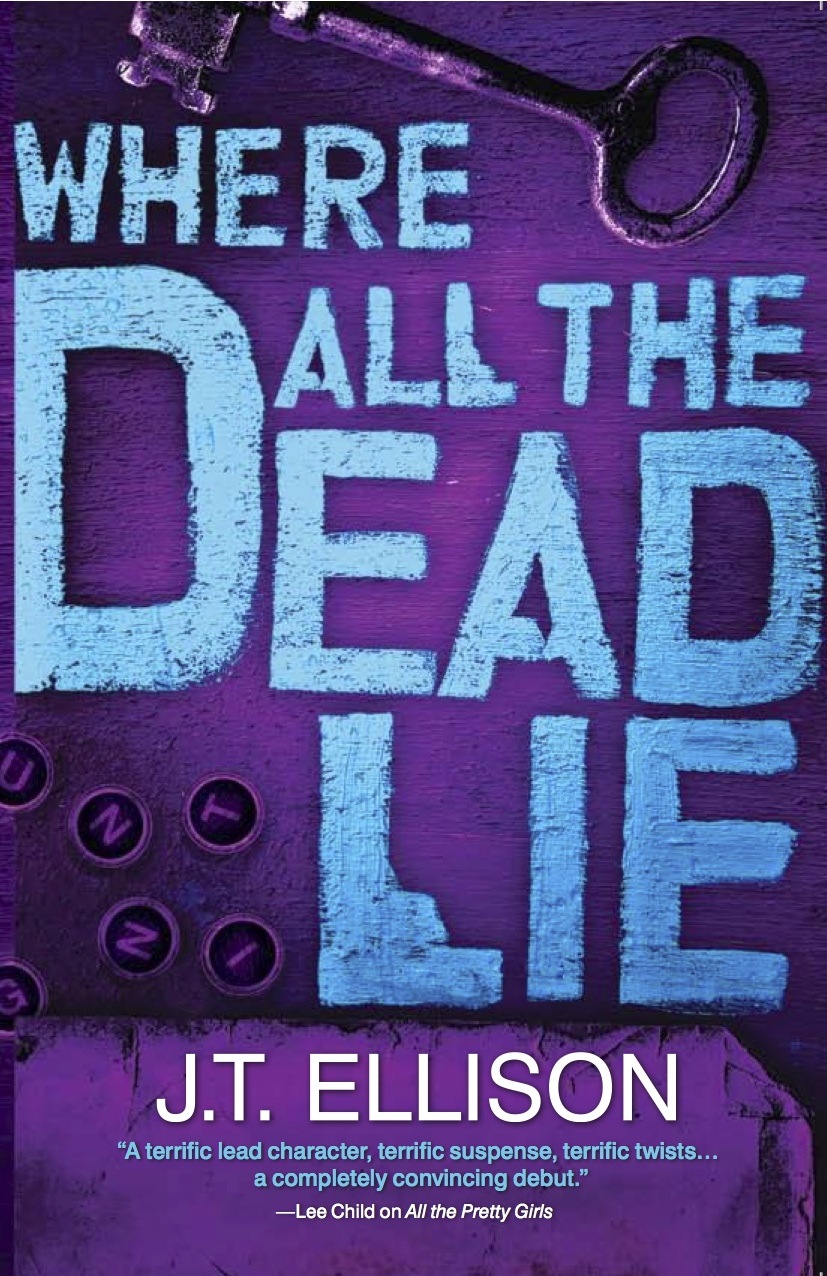Zoë did a brilliant thing in her post last week – a looking back and looking forward at her career as a writer, and JT said something about all of us maybe doing it. Which is just like JT, who is so good about one-year plans and five-year plans and that kind of grownup thing.
Well, maybe Steve’s post yesterday scared me into acting a little more like an adult, because I decided to do the career review thing for myself today, and the rest of you can do what you want.
A career is always evolving, I guess, it’s not just a writer’s career that does. And it’s interesting to look back over my career and see how certain patterns emerge. Today I’ll be looking at the fairly positive ones, not the horrific soul-crushing mistakes that take years to recover from. That’s another post.
So a first really clear pattern is that every 5 to 10 years I have moved from one medium to another, always incorporating what I’ve learned from each previous incarnation.
I started off not as a writer but in theater, at eight or nine, first acting (a lot of it) and dancing, then directing and choreographing. I didn’t start writing until college. But in theater, without meaning to, I was learning all the jobs required to write: acting, directing, set design, lighting design, choreography, musical direction, props…. I also did a stint in video production in there somewhere.
I graduated from college and worked for a couple of years in an improvisational theater ensemble, which was more great training, and a totally fabulous time. But I started getting these– feelings. Whispers, you might say. They weren’t all that coherent really, but I was picking up on a message that sounded suspiciously like: “No one’s ever going to pay you to do political theater in Berkeley.” It’s a coals to Newcastle kind of thing.
So since I’d already been to New York, and I knew I didn’t want to write for Broadway (or Off-), I decided – not all at once, but in a sort of gradual tipping point from “maybe” to “okay, let’s just do it” – that I’d move down to LA and become a screenwriter. Yes, just like that. You really have to love California; from birth we are completely inundated with T-shirt and bumper sticker messages like “Follow your bliss!” “Do what you love and the money will follow!” “Feel the fear and do it anyway!”
Even more amusing- we actually believe all that.
So I moved down to LA and became a screenwriter. Pretty much just like that. Well, I worked in development for about a year and a half while I was writing my first script, and of course I was working my ass off learning the craft and the town and everything it takes to actually accomplish it all, but it really did happen pretty much like that.
This is another example of a pattern that established itself early in my life. I’d be subliminally pushed to do something and then I’d power down, one might say obsessively, and make it happen. I directed my first full-length play at 16 by pretty much the same process; I landed an unheard-of gig (for a 17-year old!) in college directing a full-scale musical every year with an actual budget and in fantastic theater venues. The Universe is very supportive of inspiration, I find.
I won’t go into my Hollywood years, it’s too convoluted a story for one blog and I still have the PTSD issues. I’ll just say I made a good and sometimes great living as a screenwriter for a long time until I started getting those feelings again– this time more like something was going terribly wrong in the industry. A lot of this was coming from being on the Board of Directors of the WGA, the screenwriters’ union, and getting an insider look at changes happening in the film business. I started getting whispers again– something like: This is insane. Save yourself. Get out. Or at least, diversify, as they say in the financial business. And so I wrote a book. At night. Screenwriting became my day job as I sweated over the novel, one page at a time. Sometimes one paragraph or one sentence at a time. But that’s how a book gets written.
And that book sold and was nominated for a couple of awards and suddenly I was in another career. Just at the right time, I have to say, given what’s happened in the film business since I wrote that first book.
So now for the last five years I’ve been making my living at books. I have five published novels out, with numerous foreign editions, and a non-fiction workbook of my Screenwriting Tricks workshops. I have contracts for four more books, and every day I am incredibly grateful to be making a living at what I love (or some days, love to hate) in the middle of this terrible recession.
But – I’m getting that feeling, again. That – “Time to change” feeling. “Diversify,” the voice whispers. Sometimes it’s not much of a whisper; sometimes it’s a bolt straight upright in bed with a voice in my head screaming DO IT!!!! kind of thing. I mean, I have contracts for now, but what’s the business going to look like in a year?
Yes, I am talking about indie publishing.
We’ve been having these backstage discussions at Murderati about where we want the blog to go from here, and my own very strong feeling is that we need to be talking even more about e books and indie publishing. So I am putting my blogging where my mouth is and am going to do a series of posts on how the changes in the publishing business are affecting me and how I personally am dealing with it all.
I already have a toe in the e book business. Screenwriting Tricks For Authors is up on Amazon for Kindle, and I’ve been loving getting that direct deposit to my bank account every month; it really helped back there around Christmas when my advance check was taking about forever to show up. And a few weeks ago I finally buckled down and figured out how to get the book up on Smashwords, in all those formats that Smashwords does, and on B&N for Nook. And once I did, I felt like a complete idiot for not having done it before. It is instant money that I could have been getting all along.
Back to the portfolio analogy for a moment: it’s an income stream. As a professional author, I have many income streams. I get advances for my new books, I have a backlist that generates royalties, I have royalties from foreign publishers, and now I have e book income, soon to have much more, if things go as I’m planning – all in concert with my agent, of course.
The thing writers don’t talk about enough, I think, is how we actually manage to make that combine into a real living. Well, I can tell you for myself, and for most of my friends who have NOT broken into the huge advance category but are still making a full-time living at writing books: how it’s done is by constant, grueling work to get more product out there to create more income streams – on top of writing the best book you can write every single time. It’s not very pleasant, truthfully – it means firing on all four burners 24/7. But that’s nothing new – it seems to be the job description. Everyone I know does it.
Now, e books are a freaking ton of work that I’ve just added to an already overflowing plate. I am now responsible for lining up all kinds of support people that my publisher has always provided: proofreaders, editors, cover designers, formatters, technical services – and there’s a lot of new technical stuff I’ve had to learn myself, which I must say is not my forte. It’s overwhelming, which is why I haven’t fully done it before now. But I think it’s going to be crucial to have some eggs in that basket, so I’m biting the bullet, for real. To mix all kinds of metaphors, as you all know I love to do.
And honestly, the control and flexibility you get with indie publishing is exhilarating. One thing I’ve discovered is that you can create your own formats. For Screenwriting Tricks, I have been working on and off for most of the past year on an extensive revision of the first book, incorporating all the things I’ve been learning in my own workshops. And then I realized – Why revise the first one? At a $2.99 selling price I can put out another book that has a different focus, and people can choose which book is best suited to their needs, or get both – two whole workbooks for the price of one paperback novel! That’s an incredible thing. And I can price it that way and still make money because the royalties are so high.
So, in the next couple of weeks I am going to be releasing two new e books, the second Screenwriting Tricks book and a spooky new original e book novel: The Space Between – plus the Thriller Award-winning short story that I based that novel on: The Edge of Seventeen. And I’m going to write some posts documenting the process I’ve been going through and the resources I’ve discovered that helped me do it all.
It’s a whole new world, but it’s an exciting one, and I hope I can convey it in a way that might open some doors for other people thinking of taking the plunge.
So, a couple of questions. Do any of you do periodic reviews of your careers to see how far you’ve come and where you want to go from now? Do you find patterns?
And what about this e book thing? Have you done it? Are you thinking of doing it? It’s coming up on Solstice, time for some serious manifestation. Follow your bliss!!!
– Alex


